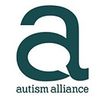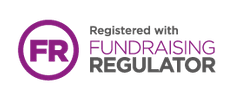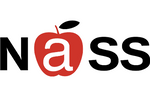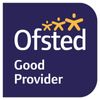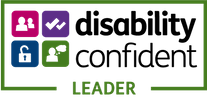Our Autism Journey
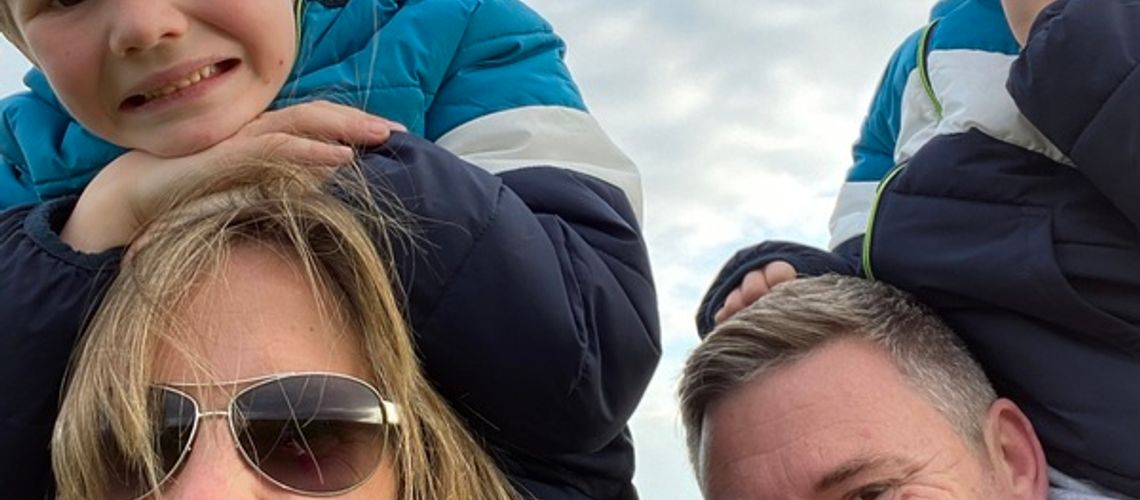
Meet Jamie, mum and carer of two autistic boys, Max and Riley, who attend Portfield School.
9 Jun 2021
Our Autism Journey – Jamie and Nick, Max and Riley.
Becoming a parent for the first time is both tremendously exciting but also a little daunting. As any expectant mother or father will tell you, the overwhelming delight is often coupled with some anxiety of the unknown, with the only certainty being unconditional love. We all know it’s going to be a life changing experience, but what few of us consider is how different, and awesome, life might actually turn out to be when we discover our child has autism. When those first milestones don’t come and an autism diagnosis follows, the dreams and hopes you have for your child change overnight, as does the parenthood path you thought you were on. However, what we also don’t imagine is the truly amazing experience we are going to have caring for and bringing up such a unique and charismatic individual. Here, we talk to Jamie, mother of Max, 7, and Riley, 5, who are both autistic. How excited were you when you first fell pregnant with Max?
We were extremely excited when falling pregnant with Max as it had taken around 4 years to conceive. The Recurring vision I had was of packing my 2 children up and taking them out for a whole day during their school holidays with their friends and friend’s parents, maybe to the beach or park, as this is what we did during our school holidays as children. Whereas Nick had visions of getting them into golf from the moment they could walk!
What led to the autism diagnosis?
When Max was born, we were of course overjoyed. His little round face and blond hair melted our hearts immediately. As a baby, we did think it was possible that he was developing slowly, but as everyone says, you shouldn’t compare your own child to others, because they are all very different. So we didn’t, instead we just encouraged him to develop at his own pace. When he was about 1, he started attending nursery school, and his keyworker suggested we take him for a hearing test which turned out to be fine. Then at 18 months, my dad suggested we talk to the Health Visitor, which the nursery had also recommended. It was from here that we were referred to the paediatrician. While I didn’t realise it was an assessment at the time, we attended weekly sessions over four weeks where Max was observed playing and interacting with other children and Nick and I were asked various questions. It was after the third session that we were told it was probable that he was autistic. How did you feel initially?
Looking back, maybe I had been naïve, but he was only just 2 so I thought they were simply looking at how they could help with his speech. Getting the autism diagnosis was a bit of a shock, particularly because I hadn’t had any exposure to it. I’d heard of autism, but I didn’t know what it meant or understand the condition at all.
Initially, Nick and I felt a little out of our depth due to our lack of knowledge and understanding of autism. We realised very quickly that no good could come from thinking too far ahead (in terms of asking questions like: Will they ever talk? Will we ever know what they are thinking? Will they ever have friends? Will they get bullied? Will they ever have any independence?). So we make a conscious effort every day to not think ahead, as it simply is not something we can predict. I have worked for my current employer for over 10 years and they have been and still are very flexible with my hours – which is a god send for school holidays and when I want to attend any courses. Nick works full time, but still shows flexibility in the same situations, we are very fortunate to be able to continue working. I will never be able to go back to working full time (which is fine by me!), due to the cost of childcare during school holidays. But we immersed ourselves in research, absorbing all the information that was available to us from the therapy team in the three months leading up to those first sessions. And we found after speaking to people that you do actually know someone, or know someone who knows someone who is autistic.
How did the support progress?
Max continued with NHS speech and occupational therapy which we topped up with private sessions, and he was seen by his paediatrician every 6 months. At home, we had to adapt, complementing his therapy by implementing communication methods, observing his likes and dislikes more closely…
First and foremost we had to make the house safe as Max was quite clumsy and always ran around looking sideways, so safety padding was added to the edge of everything (following an accident where he cut his cheek on the TV stand). Window locks were added to every window as he liked to climb on window sills, and safety locks were added to all drawers as he liked to open and close these a lot. Then it was bringing the private speech therapist into the home to suggest ways to aid Max’s developing communication, for example, sticking a board of his snacks pictures up in the kitchen, a board of his TV programme choices up in the lounge by the TV, and a garden card by the door etc. We introduced ‘now and next’ boards as early as possible and constantly have a lanyard of cue cards with us to show him where we are going / who we are seeing etc. It was an absolute joy to watch him nail each phase of PEC’s (Picture Exchange Communication System), it was also a real sense of achievement for us. The main difference is that I anticipated spending a lot of time playing games with the boys, but they much prefer to play alone so I just join for short bursts if their mood is ok.
When did you start to suspect Riley was also autistic?
Riley is 18 months younger than Max, so we were very busy supporting Max through his diagnosis whilst also sharing our love with a new-born. As a baby, Riley was so different to Max, so we didn’t have any concerns at all. But when Riley was around 16-18 months old, we mentioned to Max’s paediatrician (in one of his 6 monthly checks) that Riley still wasn’t really walking, talking or looking us in the eye. She recommended we speak to a Health Visitor, as Health visitors could then refer to a paediatrician for similar assessment.
She then told us that there was a 20% higher chance that sibling boys would be autistic, but Riley was only about 20 months old so we didn’t do the group sessions and just had a meeting with a paediatrician, Occupational Therapist and Speech Therapist. Again, I thought this was just an initial consultation but in just over an hour, they were confident Riley was autistic and even said it was more obvious than it had been with Max.
For me, I felt Riley was too young to be given such a diagnosis. He was still a baby really and I wanted them to give him more of a chance. I thought that maybe his speech wasn’t developing because Max was still non-verbal so he had no one to learn from. But they were the experts, and of course, they were right. They are experts for a reason. What has their development journey been like so far? Just before Riley was diagnosed, we had started to look at education settings for Max. The very first school we actually looked at was Portfield School and it was a shock to the system. I had assumed he would be better in a mainstream school with specialist support whereas Nick wanted him to go to a Special Educational Needs school. We proceeded to look at other mainstream schools and a couple of nearby specialist schools and very quickly, with a different perspective, it became clear that Portfield School would be the perfect fit. There was an alternative option closer to us, so we had to fight to get him in, but we just knew that the little things at Portfield School that the other school didn’t offer would make such a big difference. He is very active and physical so the sheltered playground and swimming pool was a win for us. The presence of PECS classrooms was also great because that’s how we were set up at home. Riley joined 18 months later and they have both come on leaps and bounds with the tailored support on offer at Portfield School.
Tell us just how awesome Max and Riley are?
Both boys are very different. The similarities on paper are that they are both autistic and non-verbal, but that’s where the similarities end.
Max is our little genius, especially on any type of device. He has communicated on an iPad from a very young age, which stopped him getting frustrated about not getting his message across. He is also gentle natured and very flexible within the boundaries of autism, so settling into new environments and transitioning was a breeze. The odd time he does get upset, the staff know there is something really bothering him.
Riley is super observant and highly emotional. When he is happy, he is elated and can light up any room. But he can get unhappy very quickly, and this has a lot to do with his communication. He mainly uses Velcro PECS cards to communicate at school and at home, which is getting better. We use these to show what’s happening like having a bath or going to school. He is also very rigid in his routine and can get upset if we take a different route because of road works, for example. Both of them make us proud every single day. We celebrate every milestone, no matter how small, and laugh with them all the time. We love watching the rare moments when they connect, and also when one of them unexpectedly shows you emotion. We also love seeing them connect with our extended family, all of whom have been so amazing in their commitment to learning more about autism and understanding each of the boys individually.
How have you adapted your life?
We have had to adapt certain things like school holidays, for example, we can’t just rely on normal childcare settings or play schemes.
But our lives are still very much fulfilled, full of fun, laughter and joy, and probably not that different to families with neurotypical children. I suppose the main difference is that we have to plan a lot more and can’t be as spontaneous as we might have been before. There is also a lot more of the ‘unexpected’ – you plan a trip you think they will love, but they don’t. Or, you risk a trip somewhere a bit different / new and they love it.
The boys are now 5 and 7 but they still have to be watched like a hawk. For example, if you take your eyes off Max in the garden, he will throw anything he can find over the fence (toys, washing, phones or drinks – basically anything he can lift that isn’t nailed down!) The same applies within the house as he often likes to throw things down the toilet! You need to keep an eye on Riley in relation to his mood, he may be playing nicely then something could happen, for example, Max may be too loud, there may be a sudden noise, or Riley may be getting too hot, so if you catch this early (take him to a quiet room / cool him down etc.) it can prevent / reduce the self-harm (head banging / scratching).
On the flip side – everyday life is hilarious and interesting, just watching their little routines, movements, facial expressions, the toys they gravitate to and which particular elements of the toys they are enjoying (they often use toys not in the way they are intended to be used – i.e. a hard back book is basically a drum for Riley), and it is fascinating when they occasionally watch each other. Finally, the way they burst into fits of giggles / hysterics for absolutely no apparent reason!
What are your hopes and dreams for the future?
The boys are still young, but we definitely have hopes and dreams for their future. While I would love for them to live with me forever, I would like to see them achieve a level of independence whilst staying in each other’s lives. Perhaps with them living in assisted accommodation, with rooms across the hall from each other. In terms of work or life skills, I can see Max doing something with tech and computers in a routine environment, whereas Riley would most likely enjoy something outdoors in short bursts. I know employers are already starting to see the benefits of working with autistic individuals, but I would like to see more coming on board and offering work or volunteer placements. Most importantly, I want them to be happy. As they get older, I’m sure we will see how their interests and abilities develop and like any parent, I am so looking forward to taking that journey with them.
